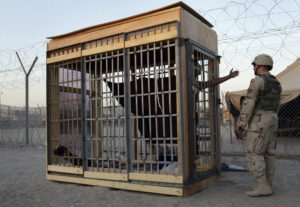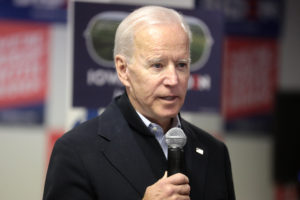Permanent Disaster
George W. Bush has little, if any, credibility left, but he should be taken seriously as he commits the United States to the long-term occupation of Iraq.WASHINGTON — There are no alligators in New York City’s sewers, and Paul McCartney is still not dead. There are those who wish the Bush administration’s plan to establish a long-term American military commitment in Iraq were just another urban legend, easily debunked if not dismissed as a joke.
It isn’t. To see this policy taking form takes no conspiratorial outlook, just a clear-eyed reading of documents the White House has made public.
The first is a “declaration of principles” that the administration agreed to with the Iraqi government of Prime Minister Nouri al-Maliki, an outline of which was made public two months ago. Among the pledges the United States has made is that it will “deter foreign aggression against Iraq that violates its sovereignty and integrity of its territories, waters or airspace.” In other words, we may be obligated to defend Iraq in much the same way we are bound to defend South Korea.
The second is a “signing statement” President Bush issued only last week on the day of his State of the Union address. Even as he signed a larger defense spending bill, Bush indicated he would ignore a congressional mandate that no funds be spent for establishing permanent military bases in Iraq. “Every time a senior administration official is asked about permanent U.S. military bases in Iraq, they contend that it is not their intention to construct such facilities,” an outraged Sen. Robert P. Casey, D-Pa., said on the Senate floor. Yet the signing statement, Casey said, “is the clearest signal yet that the administration wants to hold this option in reserve.”
Iraq is not Japan or South Korea or, for heaven’s sake, Germany. The defense arrangements contemplated in the Bush-Maliki understanding could well lead to open-ended commitments for American intervention in the tangled and enduring conflicts that bedevil the entire Middle East. Take, for example, a U.S. agreement to defend Iraq against external threats. “There are any number of scenarios,” says Brian Katulis, a Middle East expert at the Center for American Progress. “It’s up for interpretation what that actually means.”
It could mean we would be forced to act militarily to prevent Turkey, a NATO ally, from invading Kurdistan in order to roust Kurdish militias. It could mean the Iraqis would seek our aid in repelling foreign jihadists financed by, for example, Saudi Arabia. It could mean a U.S.-Iraqi alliance in a war against Iran or Syria. But all this may turn out to be the simplest part.
A second pledge of the Bush-Maliki agreement is that the United States will support Iraq in combating “all terrorist groups, at the forefront of which is al-Qaeda, Saddamists, and all other outlaw groups regardless of affiliation.” Separate language would bind the United States to support Iraq in “defending its democratic system against internal and external threats.”
What, exactly, is an internal threat to the current Iraq that the United States would be obliged to counter — and who would define it? This stipulation could have “major implications if political upheaval leads to the downfall of the elected Iraqi government,” Kenneth Katzman of the Congressional Research Service told a House subcommittee last month. Katzman testified that this could lead to U.S. intervention to “restore the elected government, or to oust a government, even a stable government that came to power through undemocratic means.”
The United States has long taken sides in coups and at times has been in the business of engineering them. But who among us is aware that the Bush administration would contemplate the use of American military personnel to restore to power the corrupt and incompetent Maliki government?
It is decidedly unfashionable to give Hillary Clinton credit for anything these days. Yet she quickly saw the danger in this template. A week after Bush released the outlines of this pact, the New York senator introduced legislation to prohibit funding for implementing any such commitment unless it takes the form of a treaty approved by the necessary two-thirds vote of the Senate. At a recent debate, she invited her opponent Barack Obama to join in sponsoring the measure, which he belatedly did.
Still, the Democratic nominating contest has been consumed with argument over a six-year-old vote authorizing the use of force in Iraq. The Republicans bicker over who is more supportive of the current “surge” in troop levels, conveniently forgetting that the surge was supposed to have been temporary.
Meanwhile, the White House careens down an ever more dangerous course, secure in the knowledge that few are watching its recklessness.
Marie Cocco’s e-mail address is mariecocco(at)washpost.com.
© 2008, Washington Post Writers Group
Your support matters…Independent journalism is under threat and overshadowed by heavily funded mainstream media.
You can help level the playing field. Become a member.
Your tax-deductible contribution keeps us digging beneath the headlines to give you thought-provoking, investigative reporting and analysis that unearths what's really happening- without compromise.
Give today to support our courageous, independent journalists.






You need to be a supporter to comment.
There are currently no responses to this article.
Be the first to respond.